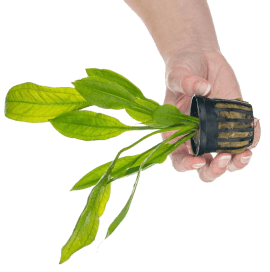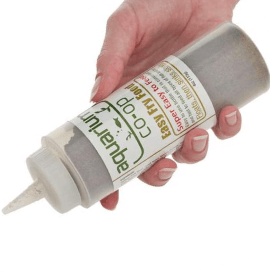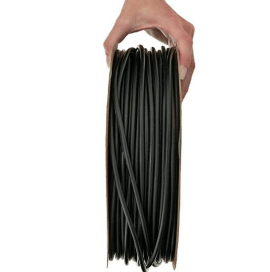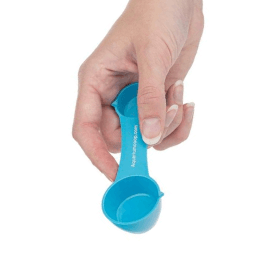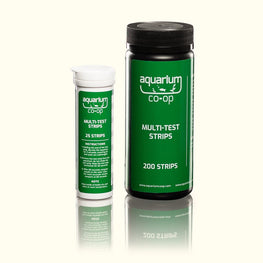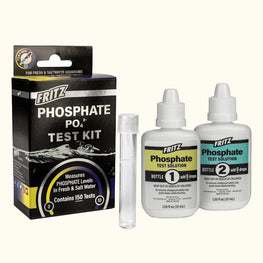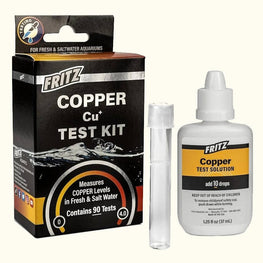Collection: Aquarium Water Test Kits
-
Aquarium Co-Op Ammonia Test Strips
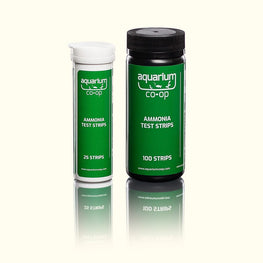
- Sale price
- Regular price
-
- Regular price
- from $10.99
- Unit price
- per
Providing clean water is essential to the health and wellbeing of your aquarium fish, but the “clearness” of your fish tank water cannot actually tell you whether or not the water is safe for living animals. Nitrogen waste compounds (e.g., ammonia, nitrite, and nitrate) produced by fish poop, excess food, and other organics can often build up to toxic levels in your aquarium, resulting in sick or dying fish. Therefore, we highly recommend the Aquarium Co-Op Ammonia Test Strips and Multi-Test Strips because of its ease of use and accuracy for measuring ammonia, nitrite, nitrate, pH, GH, KH, and chlorine levels. In an ideal fish tank environment, your aquarium test strips should measure a pH between 6.5 and 8.0, ammonia and nitrite at 0 ppm, and nitrate at 40 ppm or less. If the ammonia, nitrite, and nitrate is higher than these amounts, your pet fish is in danger of becoming very sick, so consider doing an immediate water change to help improve the water quality.
High phosphate levels can lead to algae growth in your fish tank, so use the aquarium phosphate test to see that’s what is causing an algae bloom. High levels of copper can lead to sickness in your snails and shrimp, so try the aquarium copper test to see if cooper is coming from your tap water or if you haven’t removed all traces of medication from a copper-based treatment.
Bottom line: regular aquarium water testing can help you catch small problems and prevent them from becoming big disasters for your fish, invertebrates, and plants.
